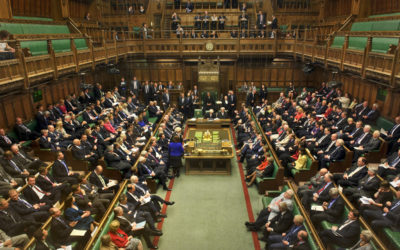Court martial raises fears over forces personnel’s right to conscience
A medic in the Royal Navy, who is facing court martial, will argue in court tomorrow that he has a legal defence. Michael Lyons has been charged with “wilful disobedience” because he asked not to participate in rifle training last September after having applied for conscientious objector status.
A medic in the Royal Navy, who is facing court martial, will argue in court tomorrow that he has a legal defence.
Michael Lyons has been charged with “wilful disobedience” because he asked not to participate in rifle training last September after having applied for conscientious objector status.
Lyons could face up to ten years’ imprisonment if convicted.
Michael Lyons’ lawyer will argue that because Mr Lyons had already declared a conscientious objection at the time of the incident, the command for him to participate in rifle training was unlawful. Furthermore, the court martial proceedings were put in place while the process of establishing whether Mr Lyons could be discharged as a conscientious objection was ongoing.
Mr Lyons’ defence are also concerned that there could be a perception that the judge in this case is not impartial. In a previous hearing the judge was asked to recuse himself from the case because he acted as Senior Prosecutor for the RAF in the case of Mohisin Khan in 2004.
However, the judge refused to recuse himself from the case. A single judge at the Court of Appeal subsequently refused permission to appeal this decision.
ForcesWatch, a network concerned with ethical issues around the armed forces, said the case highlights the lack of respect shown for the human rights of forces personnel. They have been urging Parliament to amend the current Armed Forces Bill to strengthen the right to conscientious objection.
Lyons last year requested to leave the navy as a conscientious objector, after his commitment to medical ethics led him to object to orders to prioritise British casualties in Afghanistan. He also objects to the level of civilian casualties in Afghanistan. This application was turned down and was also rejected by the Advisory Committee on Conscientious Objection (ACCO) in December as they described his objection as “political” rather than “moral”.
Emma Sangster, Co-ordinator of Forces Watch, said:
“The law grants us all the right to freedom of thought, conscience and religion. The government and the Ministry of Defence repeatedly fail to recognise this right when it comes to members of the armed forces. It would be an affront to democracy to imprison Michael Lyons for not participating in firearms training because he holds a strong conscientious objection informed by medical ethics.
“We have a number of significant concerns about the way Michael Lyons’ case has been dealt with and the simple injustice of his treatment. We urge MPs to uphold the human rights of forces personnel by clarifying and strengthening the right to conscientious objection, and the procedures for I,t in the Armed Forces Bill currently going through Parliament.”
ENDS
Details of hearing: Friday 20th May 2011, 10.45am, HMS Nelson, Royal Naval Barracks, Portsmouth
Notes
1. ForcesWatch is a network launched in 2010 concerned with ethical issues around armed forces recruitment and the rights of forces personnel.
2. The Advisory Committee on Conscientious Objection (ACCO) recommended in December 2010 that the Defence Secretary, Liam Fox, turn down Michael Lyons’ application for discharge due to conscientious objection.
3. Serving members of the forces legally have a right to apply for discharge if they develop a conscientious objection. However, evidence from At Ease, a forces helpline, suggests that many are unaware of this right. No reference is made to it on the Enlistment Paper, the contract a recruit signs on joining the armed forces. For more information, see Forces Watch’s briefing on conscientious objection at http://www.forceswatch.net/resources/forceswatch-briefing-conscientious-objection.
4. Mohisin Khan v RAF http://www.bailii.org/ew/cases/EWHC/Admin/2004/2230.html
See more: conscientious objection, legislation & policy, ForcesWatch, Michael Lyons









